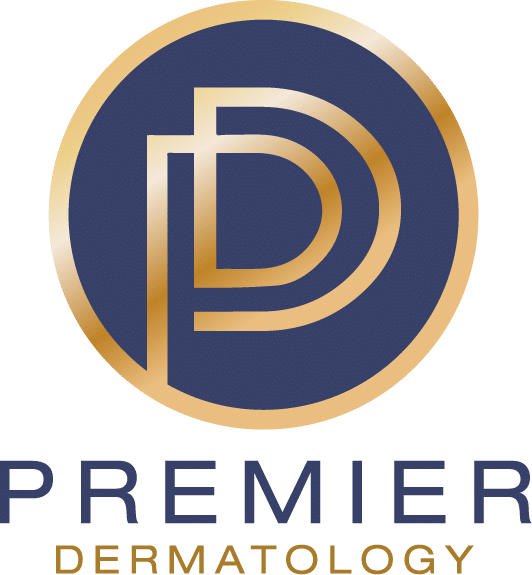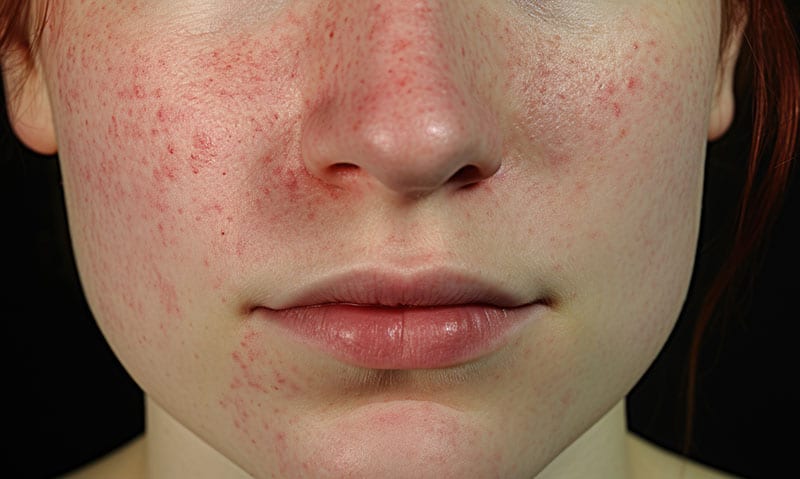The skincare experts at Premier Dermatology in Wellesley, MA leverage their expertise and a variety of treatment approaches to address chronic skin conditions such as acne, eczema, psoriasis, and rosacea. In this inaugural blog, we will delve into these skin conditions and their treatments and touch on some advanced skin rejuvenation procedures that offer therapeutic benefits in addition to aesthetic enhancements.
Acne Treatment
Acne is perhaps one of the most widespread skin conditions, affecting people of all ages. Characterized by pimples, blackheads, whiteheads, and sometimes painful cysts, acne can have a profound impact on an individual’s self-esteem. Fortunately, advancements in dermatology have led to a variety of effective treatment options.
- Topical treatments: Dermatologists often prescribe topical treatments containing ingredients like benzoyl peroxide, salicylic acid, or retinoids to target acne. These medications work by unclogging pores, reducing inflammation, and preventing new blemishes from forming.
- Oral medications: For severe cases of acne, oral medications like antibiotics, hormonal therapies, or isotretinoin may be recommended. These medications tackle acne from within, addressing the underlying causes.
- Laser therapy and light treatments: In recent years, dermatologists have incorporated laser therapy and light treatments into acne management. These procedures can help reduce acne-causing bacteria and inflammation, promoting clearer skin.
Eczema Management
Eczema, also known as atopic dermatitis, is a chronic skin condition characterized by itching, redness, and dryness. It often starts in childhood but can persist into adulthood. Managing eczema requires a multifaceted approach, and advancements in dermatology have introduced new treatment options.
- Moisturizers and emollients: Proper skin hydration is crucial for eczema management. Dermatologists recommend using hypoallergenic moisturizers and emollients regularly to maintain skin integrity and reduce itchiness.
- Topical corticosteroids: These anti-inflammatory creams or ointments are commonly prescribed to reduce redness and itching during eczema flare-ups.
- Immune-modulating medications: Emerging treatments like topical calcineurin inhibitors offer an alternative to corticosteroids. They target the immune response in the skin, reducing inflammation.
- Biologic therapies: In severe cases of eczema, biologic therapies can provide relief by targeting specific immune system components involved in the condition. This is a relatively new but promising approach in eczema treatment.
Psoriasis Therapy
Psoriasis is another chronic skin condition characterized by raised, red, and scaly patches on the skin’s surface. It is an autoimmune disorder, and while there is no cure, dermatology has made significant strides in managing its symptoms.
- Topical treatments: Similar to acne and eczema, psoriasis can be managed with topical treatments, including corticosteroids, vitamin D analogs, and coal tar preparations. These aim to reduce inflammation and slow down skin cell turnover.
- Phototherapy: Phototherapy, or light therapy, uses ultraviolet (UV) light to slow down the excessive skin cell production associated with psoriasis. It can be administered under medical supervision.
- Systemic medications: In cases of moderate to severe psoriasis, systemic medications like methotrexate, biologics, or oral retinoids may be prescribed to suppress the immune system’s response and manage the condition.
Advancements in Dermatology Treatments
Beyond addressing specific skin conditions, the field of dermatology continues to evolve with innovative treatments and technologies.
- Microneedling and dermal fillers: Microneedling is a minimally invasive procedure that stimulates collagen production, improving skin texture and reducing scars.
- Laser therapies: Lasers are now used for a wide range of dermatological treatments, from removing tattoos and birthmarks to rejuvenating the skin and treating pigmentation issues.
- Platelet-rich plasma (PRP) therapy: PRP involves using a patient’s blood components to promote skin healing and rejuvenation, making it a popular choice for skin revitalization.
Contact Us to Learn More
Schedule a consultation at Premier Dermatology to learn more about treatments for chronic skin conditions or skin rejuvenation. Our experts can provide personalized guidance and treatments tailored to help you achieve and maintain healthier more radiant skin.

